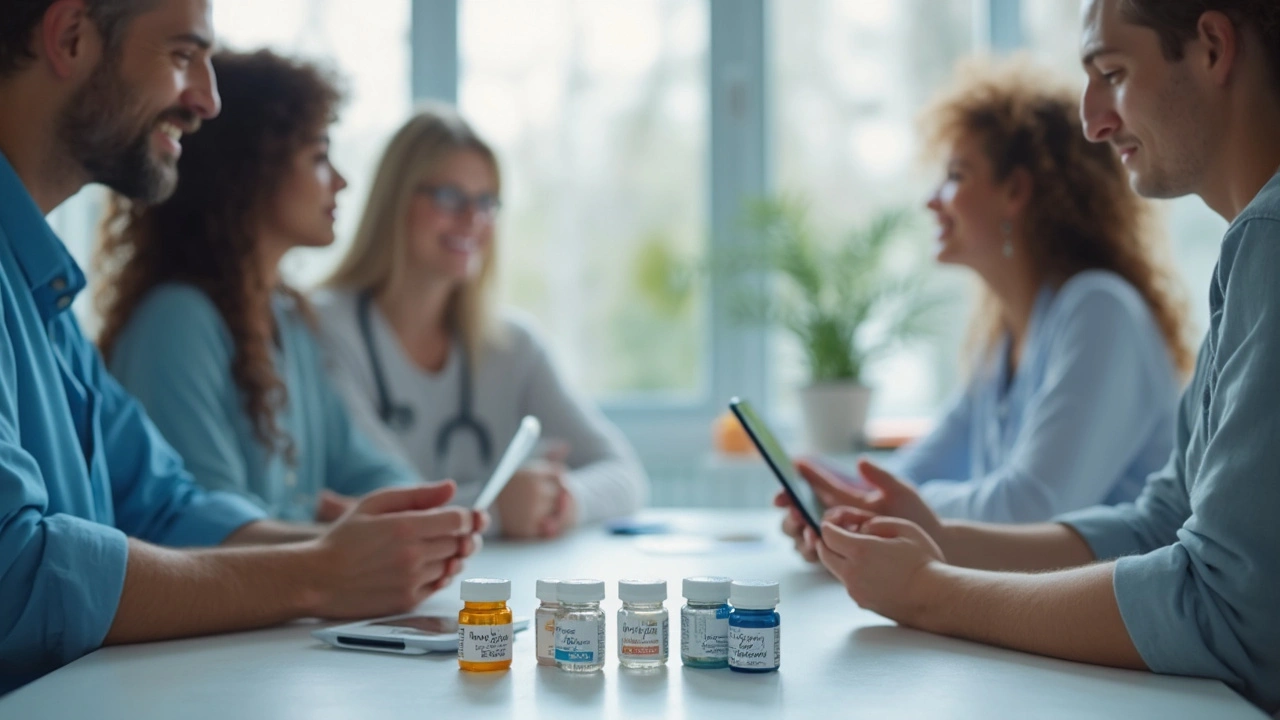Alcohol Dependence Medication
If you or someone you care about is trying to cut back or stop drinking, medication can help. Drugs for alcohol dependence do three main jobs: reduce craving, make drinking unpleasant, or normalize brain chemistry after stopping. They work best with counseling, support groups, and a clear plan from a doctor.
Common medications and how they help
Naltrexone lowers the urge to drink by blocking brain receptors tied to reward. It comes as a daily pill or a monthly injection (extended-release). Many people notice fewer heavy-drinking days within weeks. Side effects can include nausea, sleep problems, or headaches. Important: naltrexone isn't safe for people who use opioids.
Acamprosate helps restore balance in the brain after you stop drinking. It's taken twice or three times a day and works best for people who are already abstinent and want to stay sober. Common issues are diarrhea or tiredness, but it’s generally well tolerated and safe with many other medicines.
Disulfiram creates an unpleasant reaction if you drink while taking it—flushing, nausea, and fast heartbeat. That deterrent can work for people who want a strong, immediate consequence to avoid slips. It needs commitment and careful monitoring because reactions can be severe if alcohol is consumed.
Other options include topiramate and gabapentin, used off-label for alcohol dependence. Some people find them helpful for craving and sleep, but they carry risks like dizziness, memory trouble, or sedation. Nalmefene is available in some countries as an as-needed option to reduce heavy drinking.
How to choose and use medication safely
Talk with a clinician who knows addiction medicine. They'll review your health, liver function, other meds, and any opioid use to avoid dangerous interactions. Expect a plan that pairs medication with therapy—CBT, motivational interviewing, or mutual-support groups improve long-term success.
Be realistic: no pill guarantees sobriety. Meds reduce risk and make change easier. Track your drinking, side effects, and mood. If a drug causes bad effects or doesn’t help after a fair trial, ask about switching or combining treatments. Some people use naltrexone plus acamprosate under supervision—clinicians decide case by case.
If cost or access is a problem, ask about generics, patient assistance programs, or community clinics. Never stop medication abruptly without talking to your provider. Also, check if your plan covers therapy and medication together—coverage improves outcomes.
Ready to start? Make an appointment, get baseline labs if needed (like liver tests), and set clear, measurable goals with your clinician. Medication isn’t a quick fix, but used the right way it can change cravings, protect your body, and help you rebuild your life one day at a time.

